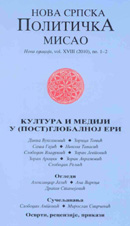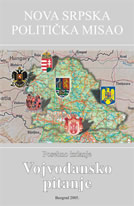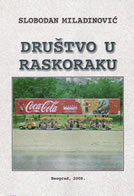| NSPM in English | |||
"Brazil is not for beginners!" |
 |
 |
 |
| sreda, 03. jul 2013. | |
|
The Latin American spring blooms
Joined to the protest from the beginning, those left-wingshave a long history of struggles and mobilizations against gentrification and the state of exception exercised at the expenses of the poor, in the name of massive sporting events. On June 20th, in Rio and in São Paulo, right-wing groups within the marches directly attacked these leftists. Several activists were hospitalized, including those from labor unionsas the Unified Worker’s Central (CUT) and from social movements as the Landless Worker’s Movement (MST). The nearly-obsessive anti-partisanship heard in the protests, the "no party" cries, reveals a widespread rejection of the mere presence of flags or shirts indicating political associations. Meanwhile, many protesters wear yellow and green, and sing the national anthem. The press does not hesitate to compare them to the 1992’s Painted-Faces Movement. That year, supported by the mainstream press, the youth went to streets to call for Fernando Collor’s impeachment. And it succeeded. Dilma’s right-wing opposition is not idly using this very image.
Most of the protests have culminated in violent street clashes. They remind 2011’s English riots, but on a larger scale, with depredation, arson, looting and graffiti. In Rio, on June 20th, the state government reacted with cavalry, shock troops and Special Operations Battalion (BOPE). In addition, they randomly bombarded the crowd with tear gas grenades, pepper spray and rubber bullets. In their "caveirões" (armoredbelligerent vehicles), the police chased dispersing protesters, but also homeless. They attacked anyone who was in nearby neighborhoods such as the touristic Lapa, known for its cultural and bohemian life. Evidently, the extremist right-wing groups, as well as members of social movements, are minority compared to the huge number of people who never before had taken part in any political act demonstration. It is clear how the free-fare protests, spectacularly suppressed in the first acts, catalyzed a diffuse feeling of indignation. One cannot equate the "anti-partisanship" coup-yearning trendspromotedby the right-wingwith the refusal cry "que sevayantodos!", similar to what happened in Argentina in 2001, and the cycle of occupations in 2011.
At the core of the matter relies the wonder: Who would expect that Latin American Spring would be blossomed in Brazil? In the last ten years, the country mainly brought 40 million people to an unparalleled level of income and consumption (achieved by the "new middle class"), made possible the creation of 19 million jobs in the midst of one of the worst global crisis through the massiveincome transfer policies?The question that has choked Brazilian intellectuals’throat is: why then do millions of young people feel politically unrepresented? What are the causes and meanings of a popular demonstration of such proportions? Elizabeth Bishop once said: "Brazil is not for beginners!" Evidently that the response can be articulated at various legitimate levels of narrative, such as: the low level of confidence in representative institutions, considered corrupt and undemocratic; the government’s opacity and compliance in issues concerning the mega sporting events, the unfulfilled promises of the social rights’ implementation agendas (such as health, education and public transport), or even the exceedingly-patriotic depoliticization of certain Brazilian middle and upper-middle class youth, who reaps the benefits of capitalist growth without have ever tasted its poison. Certainly,various diffusional narratives ground the protests, but there is something else. Even though, it is true that the extreme right-wing is fighting for space, it would be too reductionist to identify the impulses that lead the crowds into the streets only with fascism and fascist conspiracy. The polyphonic protests are not mere propagator of pre-coup de État times. No, we have not seen this film before... Protests in Brazil express once again the genuine temporality of the rupture with classical methods of conceiving politics, which has been largely mitigated either by the lethargic democratic representation or by political action as an exclusive prerogative of identity politics movements. Could it be the case that nowadays we are facing, broadcast live, the opening for a new grammar for thinking and acting politically? Could rebellion, resistance and protest be no longer considered as the bitter spice of the institutional designs and state politics? But rather the taste/the gesture to alert us towards what is essential in politics: the salt of those who cry for justice. The meanings and senses of the demonstrations are open and in permanent dispute; and sometimes it can be violent. It is time to channel streets’ potency to promote the reforms the country needs. A political narrative has been recovered: the recapture of the streets, and collective capacity to act and create new political meanings. Now, the challenge is to act within this ambiguity, to strengthen its positive trends, beyond the limits of Dilma’s government and the representative left itself. Without becoming discouraged by the bitterness of the struggle, it is time to recognize that, from now on, nothing will be as before. Our problems have changed and that is what matters. |
Od istog autora
Ostali članci u rubrici
- Playing With Fire in Ukraine
- Kosovo as a res extra commercium and the alchemy of colonization
- The Balkans XX years after NATO aggression: the case of the Republic of Srpska – past, present and future
- Iz arhive - Remarks Before the Foreign Affairs Committee of the European Parliament
- Dysfunction in the Balkans - Can the Post-Yugoslav Settlement Survive?
- Serbia’s latest would-be savior is a modernizer, a strongman - or both
- Why the Ukraine Crisis Is the West’s Fault
- The Ghosts of World War I Circle over Ukraine
- Nato's action plan in Ukraine is right out of Dr Strangelove
- Why Yanukovych Said No to Europe

.jpg)








 Who could imagine, in the beginning of the month, that the demonstrations would reach the millions? Merely ten days later, the protests had multiplied by 200, spread from big cities to the average-sized in all regions of the country, and proliferated to distant and poorer neighborhoods within metropolitan areas. On the 20,thaccording with the own police, there were 300 000 protesters, just in Rio de Janeiro, marching to City Hall (organizers even divulgate one million people). The impulse that the protests have received in quantitative terms is proportional to the volume of wariness and concerns regarding their qualitative character. Free-fare was no longer a movement’s demand and MPL (Free Fare Movement) itself stated it would leave the marches due to its "fascists trends". The more traditional left-wingers, either supporting or opposing Dilma’s government, have been systematically harassed.
Who could imagine, in the beginning of the month, that the demonstrations would reach the millions? Merely ten days later, the protests had multiplied by 200, spread from big cities to the average-sized in all regions of the country, and proliferated to distant and poorer neighborhoods within metropolitan areas. On the 20,thaccording with the own police, there were 300 000 protesters, just in Rio de Janeiro, marching to City Hall (organizers even divulgate one million people). The impulse that the protests have received in quantitative terms is proportional to the volume of wariness and concerns regarding their qualitative character. Free-fare was no longer a movement’s demand and MPL (Free Fare Movement) itself stated it would leave the marches due to its "fascists trends". The more traditional left-wingers, either supporting or opposing Dilma’s government, have been systematically harassed..jpg)














